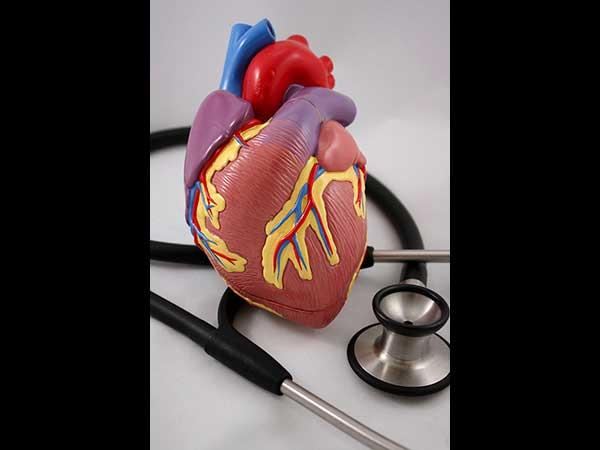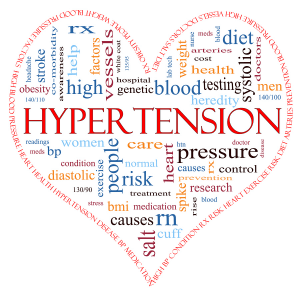Heart Attack Prevention: How to Maintain Good Cardiac Conditions

The heart is an organ that is deeply connected to the circulatory system of the body. Its function is to pump blood which contains nutrients to every organ/part of the body via the blood vessels. It is the most important organ of the body and, assists the body in the removal of waste material. In humans the heart is located between the lungs, in the middle compartment of the chest. The heart being the core of the body should be protected at all cost, to prevent further damage to other parts of the body.

Contrary to popular belief, age isn’t necessarily a factor when considering the risks of getting a heart disease or heart attack. The health of your heart merits the attention given to it. According to the Centers For Disease Control and Prevention (CDC), someone in America whether male or female has a coronary complication every 25 seconds. This makes heart disease one of the leading causes of death among men and women in America.
The most common heart diseases suffered among Americans are; Coronary Heart Disease (CHD) or a Heart Attack.
What Is Coronary Heart Disease (CHD)?
Coronary Heart Disease (CHD) also referred to as, Coronary Artery Disease (CAD) occurs in an individual when the coronary responsible for taking blood to the heart is blocked or narrow. This usually occurs as a result of the buildup of cholesterol and fatty material (plaque) in the arteries. The buildup of plaque can be attributed to the high blood pressure, smoking and too much sugar.
Some noticeable symptoms are;
- Pains around the chest area.
- Indigestion and nausea.
- Shortness or fast rate of breathing.
What is a Heart Attack?
A heart attack usually happens when blood flow to the heart is supposedly cut short, this could lead to a part of the heart dying.
Some symptoms of a heart attack are;
- Pain or discomfort in the left part of the chest.
- Pain in the upper part of the body.
- Breaking in a cold sweat.
- Shortness of breath and nausea.
Individuals who are prone to heart diseases are usually men in their early 60s and 70s. Women often experience heart diseases later on in about 10 years later; 80s and 90s.
Women are thought to experience these diseases later in life due to the protection of estrogen, which women have in abundance during childbearing years. However, this hormone begins to decline after menopause which increases the risk of experiencing heart diseases.
Fortunately like every other age prone diseases, heart disease can be prevented from an early age and managed in patients who suffer this ailment.
Here are a few tips that could help you maintain good cardiac conditions;
Eat Healthy
As the saying goes “You are what you eat”, this should be taken more literally than it used to. Our diets are of primal importance when considering our health, certain health conditions are often influenced by the foods we consume. It is however almost impossible to immediately change our eating habits therefore, a gradual process to ease into the diet routine should suffice.
Some tips on eating the right foods to maintain a healthy weight and heart are;
- Control your portion size. You can use a small plate or bowl. Be cautious of the serving size, you could easily use a cup to measure how much food per serving.
- Eat large portions of low calorie count like fruits and vegetables and, smaller portions of high calorie count like processed foods. Better still stay away from processed food if you can.
- Eat whole grains. Consuming a good amount of fibre like whole grain or wheat bread, high-fiber cereal can help in regulating blood pressure and heart health.
- Limit unhealthy fats. Unhealthy foods that contain trans fatty acids can lead to a high level of cholesterol and can aggravate symptoms and risks of a heart disease.
A good diet can lower the risk and symptoms of a heart disease while, keeping your body fit and healthy.
Exercise Regularly
The heart is a muscle and, like every other muscle it requires exercise to increase the strength. You don’t necessarily have to be an athlete to exercise regularly, taking a walk for 30 minutes can help you burn calories. Regular exercise can help in reducing cholesterol, lowering blood pressure and help you burn calories.
Some exercises that could help the heart effectively are;
- Aerobic exercises like walking, running, jogging and biking. The aim of aerobic an exercise is to stimulate the heart by raising the heart rate. However if you are completely out of breath and can’t speak, you might be pushing too hard.
- Stretching is another form of exercise that is great for the heart. It also helps in joint problems and, flexibility.
You should aim for at least 150 minutes of exercise in a week that is, 30 minutes of exercise in a day. This would help burn calories faster and, help you in deciding if you wish to push yourself harder or not.
Quit Smoking and Drinking
Smoking is one of the worst habits an individual can pick up. It not only hurts your lungs but also every part of your body. Smoking is the leading cause of several disease like Lung cancer, Stroke, gum disease, heart disease, vision loss and complications in pregnancy.
It would be in your own interest to quit smoking and avoid second hand cigarettes.
Drinking is often referred to as a “necessary evil” however, deciding to stop drinking can do you more good than harm. You can also drink an accepted amount of alcohol; one drink a day for women and, two drinks for men.
They are however, classified based on their alcohol percentage
- Bottle of beer (12 ounces)
- Bottle of wine (5 ounces)
- Shot of liquor (1.5 ounces)
These volumes of alcohol are not harmful to the heart. As a matter of fact, red wine does wonders for the heart.
Manage Stress
Stress can sometimes be the cause of a heart attack and can cause depression, heart disease and, high blood pressure. You can manage stress through the following ways;
- Yoga
- Eating healthy
- Talking to a therapist
These tips can help you maintain good cardiac conditions and, a healthier and happier lifestyle.




